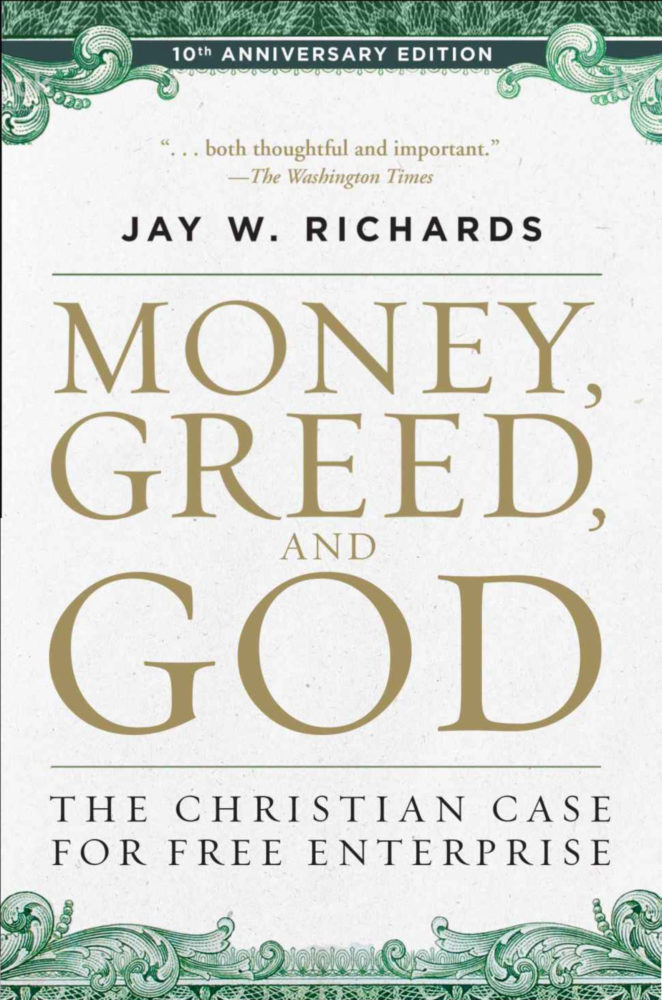Many of us have had flu shots this fall, but what about an inoculation against the hate-America economics that many colleges teach? Money, Greed and God: Why Capitalism Is the Solution and not the Problem, by Jay Richards (Harper One, 2009), undercuts myths that students might otherwise accept as facts.
Among the myths Richards demolishes: The Nirvana Myth (contrasting capitalism with an unrealizable ideal rather than with its real alternatives), the Piety Myth (focusing on good intentions rather than results), and the Materialist and Zero-Sum Game Myths (believing that wealth is not created but simply transferred).
Richards, one of that rare breed with a theology doctorate but an understanding of economics, also points out the errors of the Greed Myth (believing that the essence of capitalism is greed), the Usury Myth (that charging interest on money is immoral), and the Freeze-Frame Myth (that what’s happening now regarding population, income, natural resources, or so on, will always happen).
After knocking down the concept of Christ against capitalism, Richards summarizes proven ways to alleviate poverty: Teach that the universe is meaningful, thrift is good, and the rule of law is essential. He discusses the importance of delaying gratification, establishing property rights, and building stable families. An appendix helpful to libertarians shows why “spontaneous order” in economics does not argue against Intelligent Design in biology.
Another new defense of free markets, Guy Sorman’s Economics Does Not Lie(Encounter, 2009), lacks Christian understanding but shows how economic freedom has lifted hundreds of millions out of poverty: He notes that our goal now should be “to secure and protect the system that has served humanity so well, not to change it for the worse” because it is not perfect.
Read More ›



